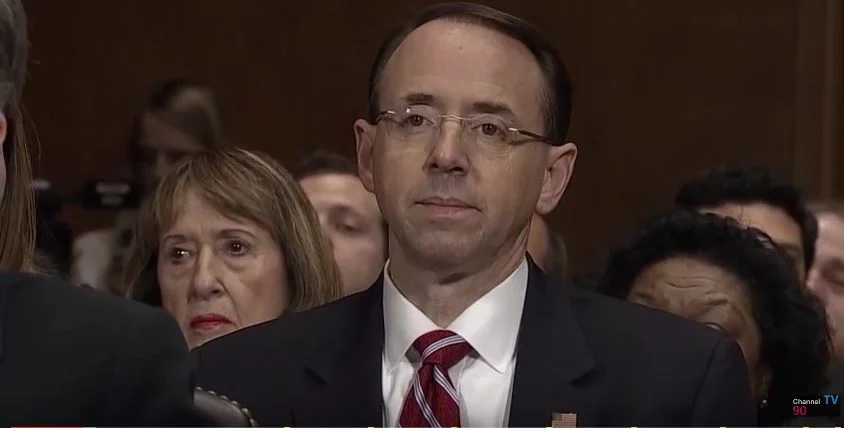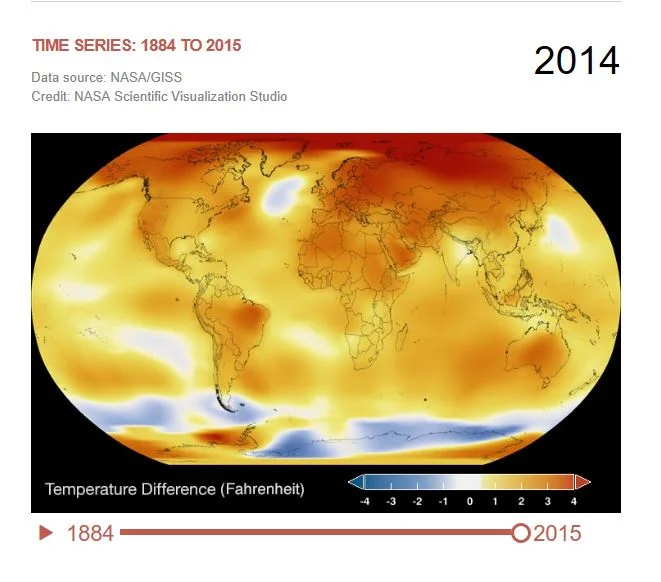Democracy dies in daylight
Photo credit: © Alexander Shcherbak/TASS
By TATIANA PROPHET
Democracy dies in darkness. And wars begin in the light of day.
The first sentence is the new motto of the Washington Post. The second, a description of what happened in 2002 when the media relied on anonymous sources in or allied with the U.S. government.
"In the last 14 months, Iraq has sought to buy thousands of specially designed aluminum tubes, which American officials believe were intended as components of centrifuges to enrich uranium," wrote Judith Miller and Michael Gordon on September 8, 2002. "American officials said several efforts to arrange the shipment of the aluminum tubes were blocked or intercepted but declined to say, citing the sensitivity of the intelligence, where they came from or how they were stopped.”
The article relied on either “officials” or Iraqi defectors (as well as an unverified “paper” from our enemy Iran) as saying Iraq was accelerating a nuclear as well as chemical weapons program.
Miller and Gordon even mentioned anonymous “critics” of the administration as saying Iraq can be contained since, its government, “critics say, remains heavily dependent on external assistance to advance its nuclear program.” These counterarguments did not deny the existence of a nuclear program; they only expressed opinions about how to react to it.
The Washington Post editorial page, February 6, 2003.
Much further down in the story was an identified former Clinton administration official who said Iraq had the capability to start a nuclear program but that it would probably take several years to achieve.
But the message was clear: multiple (anonymous) sources are pointing to a nuclear and chemical threat from Iraq. One can only imagine what the Facebook posts would have looked like, had the social network existed back then. Lots of memes about Saddam the butcher; the deck of cards put out by the U.S. government showing all the wanted officials of Saddam’s Baath party; and most importantly, a lot of posts with colored backgrounds and 22-point type saying “Let’s roll!”
The Washington Post editorial board bought the "evidence" shared by Colin Powell hook, line and centrifuge, reinforcing the shoddy reporting by The New York Times and not making much of an effort to search for the truth.
Everyone knows what happened next. Just two weeks later, on October 11, the U.S. Senate voted to give President Bush the authorization to go to war. Based on media reports, support for an invasion hovered between 52 percent and 59 percent, according to a Gallup poll. On March 20, 2003, the “shock and awe” air campaign began.
Yet on March 7, the director of the International Atomic Energy Agency, Mohamed ElBaradei, had issued his findings after conducting inspections in Iraq. They concluded, among other things, that the aluminum tubes ordered by Saddam were intended for the construction of conventional rockets.
The Judith Miller/Michael Gordon article on aluminum tubes, Sept. 8, 2002
“Based on available evidence, the IAEA team has concluded that Iraq’s efforts to import these aluminium (sic) tubes were not likely to have been related to the manufacture of centrifuges and, moreover, that it was highly unlikely that Iraq could have achieved the considerable re-design needed to use them in a revived centrifuge programme,” wrote ElBaradei.
Further, the documents that were the linchpin of President George W. Bush’s case for war, allegedly showing that Iraq acquired uranium yellowcake from the country of Niger, were shown by ElBaradei to be forgeries.
In the end, as everyone knows, not a single piece of evidence emerged showing Saddam Hussein had developed weapons of mass destruction.
Read Slate's "The Scoop That Melted"
Today, we are dealing with a much different set of anonymous sources. But the conclusions are just as certain. And very few people are alarmed, because the topic of these anonymous sources is the current occupier of the White House: President Donald J. Trump.
On Monday, the Washington Post ran an article headlined: “Trump revealed highly classified information to Russian foreign minister and ambassador.”
Reporters Greg Miller and Greg Jaffe cited “current and former U.S. officials” as the source of this information. At one point, a “former senior U.S. official who is close to current administration officials” gave a lengthy quote.
“It is all kind of shocking,” the official reportedly said. “Trump seems to be very reckless and doesn’t grasp the gravity of the things he’s dealing with, especially when it comes to intelligence and national security. And it’s all clouded because of this problem he has with Russia.”
In publishing that direct quote, the Post is violating widespread ethics regarding anonymous sources. Specifically, it is strongly frowned upon to allow an anonymous source to either praise or condemn an individual, because that source's motives are obscured. But most of those who disapprove of Trump (based on a picture painted by the Washington Post) don't care because it's, well, Trump.
The classified information revealed had to do with a plot by ISIS, according to the article, involving laptops being brought on airplanes. The problem with the revelation was that Trump allegedly revealed the city where the intelligence was learned, which would reveal the third-party nation who provided it to Russia. Though not a U.S. ally, Russia is a permanent member of the United Nations Security Council along with the United Kingdom, France, China and the United States. It was unclear from the article exactly what Trump revealed but there were a lot of anonymously sourced assertions that portrayed the White House in damage control mode.
It was widely reported in March that the United States and the United Kingdom were instituting a ban on bringing laptops or other computer devices on flights from certain countries, citing a plot by Al Qaeda in the Arabian Peninsula.
Another assertion, which became part of the headline in Facebook’s trending section, was that Trump boasted about how highly classified the intelligence was.
"In his meeting with Lavrov, Trump seemed to be boasting about his inside knowledge of the looming threat,” wrote Miller and Jaffe. “ ‘I get great intel. I have people brief me on great intel every day,’ the president said, according to an official with knowledge of the exchange.”
It's not very often that we read a direct quote that is basically hearsay in a serious newspaper. In this case, there were no media present, so apparently the Post felt justified. The meeting with the Russian Foreign Minister was not open to American media. In fact, it was not open to any media, but a photographer for the Russian Tass news agency was admitted as the minister’s official photographer. The photos were subsequently published on the web site for news agency Tass.
Read the Tass article on the meeting here.
Even if the President had said he got great intel, a group of grade schoolers could probably come up with that quote, because that is a feature of his way of speaking and the easiest Trump joke that anyone can make. It's another thing entirely to take such a quote as serious boasting. To suggest that he boasted either shortly after revealing said intel, or perhaps shortly before, especially by placing that information in a headline, is misleading at best.
There was very little mention of President Trump’s efforts to work with Russia on the never-ending violence in Syria or to coordinate efforts to stop the Islamic State. But since the April 7 air strike on a Syrian air base, relations with Russia have been tense. That Lavrov was making a visit to Washington, his first since Trump was elected, can be seen as significant, as well as encouraging for some kind of attempt at cooperation on peace efforts in Syria.
But the drum beat of the investigation of President Trump’s ties to Russia overshadows any other story coming out of Washington right now. While it’s certainly not the same situation as the lead-up to the Iraq War, the lack of due diligence on seeking out a counterargument is concerning.
The use of anonymous sources, while on the rise, is discouraged by our biggest media outlets, notably The New York Times and National Public Radio. The Washington Post does not discourage their use, but states that “some kind of identification is almost always possible – by department or by position, for example – and should be reported.”
National Public Radio states sources should never be quoted anonymously attacking or praising others. "While we recognize that some valuable information can only be obtained off the record, it is unfair to air a source's opinion on a subject of coverage when the source's identity and motives are shielded from scrutiny," state the NPR guidelines.
Shortly after the Post article on Monday, The New York Times published a similar article. It also quoted anonymous sources. It was not clear whether those sources were the same ones the Post was talking to. That's a no-no as well.
In 2004 and 2005 there was a flurry of self-examination and even a rewriting of policy at The New York Times in the wake of the outing of CIA agent Valerie Plame by Bob Novak, the use of anonymous sources by Judith Miller, and quite possibly the first known case of fake news, the Jayson Blair scandal.
“While many sources have long sought anonymity to disparage an opponent or enemy, the current White House can be found praising the president’s decision-making anonymously,” wrote Public Editor Byron Calame in November 2005, calling Washington, D.C., the “mother of confidential sourcing” in the same column.
But all of that seems to have gone away, now that a very unconventional outsider, a “buffoon,” a “racist,” a “mentally ill” idiot who suffers from dementia, is occupying the White House. We know these things are true. Because there are very few voices being quoted with a different assessment.
When the media quote each other, and there is only one viewpoint emerging, democracy dies in the light of day.





